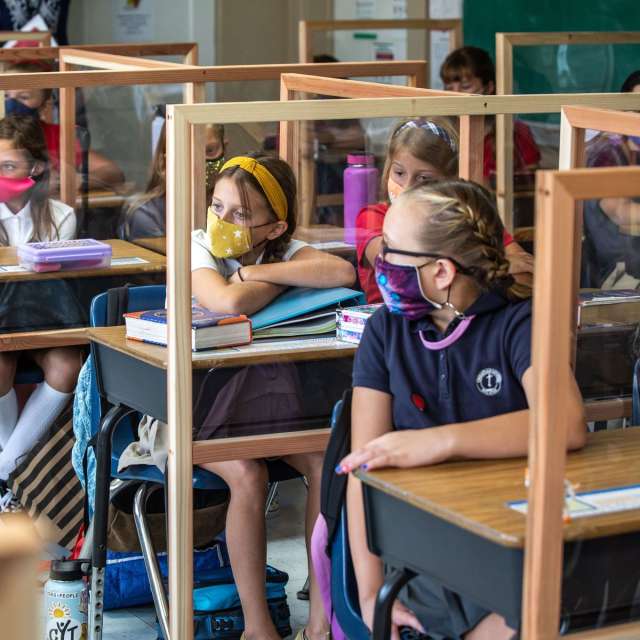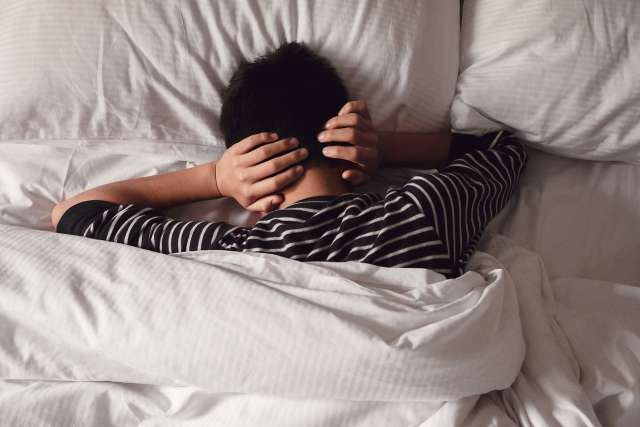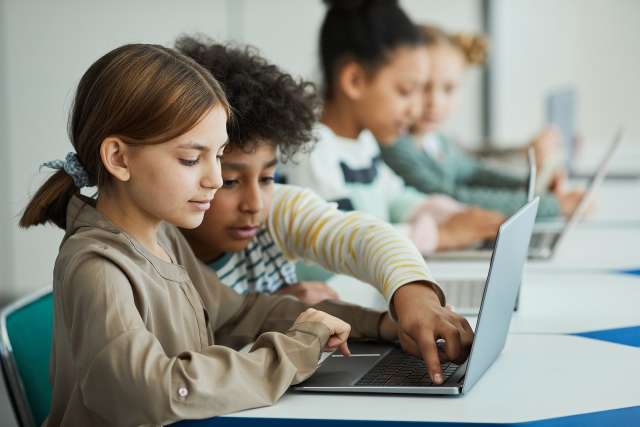From a young age, we engage socially via facial gestures.
For example, watch what happens to this baby during a brief period in which the mother stops communicating via facial expressions The baby tries harder and harder to get a smile and positive response from their mother. How does the baby fair after just a few moments? She melts down.
It isn’t hard to translate this to our young teens, so keyed into peer approval. Absent smiles and friendly looks, or more accurately, with no visible smiles or friendly looks from their peers, our children feel more isolated. Minus these unspoken communication methods, they have a harder time parsing their social interactions and feeling comfortable in their new or rekindled friendships.
Other 2021 Factors
Children aged 10-14 are coming of age during a pandemic. But they are also coming of age during Tiktok and other pervasive social media. No other age group in history has experienced such a digitally-focused upbringing. Data shows social media is especially detrimental to teenagers.
What is the answer?

The answer is complicated. With the resurgence of COVID variants, we can’t just take off our masks. One thing we can do is weigh the effectiveness and costs of some socially distant practices. For instance, plastic barriers do not seem to be effective in stopping the spread of COVID,
It isn’t hard to imagine that these same plexiglass barriers can make our children feel isolated.
Another thing we can do as parents is provide unstructured chances to play with peers outdoors where transmission rates are far lower. Encouraging children to sign up for clubs or sports (assuming you feel they sufficiently adhere to basic protocols) can also provide social support.
Importance of physical activity to reduce stress, depression, anxiety
Ultimately, it helps to remember that as parents, we also can provide support. Roughhousing with children at this age can help strengthen your relationship and release stress throughout the household. A little tickling and laughter can go a long way in easing tensions and resetting your kids.
And as always, it helps to remind children that this isn’t going to go on forever, right? While it’s hard to know when that will be because of frequently evolving variants, lockdowns, and protocols, there is plenty of evidence that we are on the right track. Science, vaccines, and masks DO make us safer and can help you provide concrete reassurance to your kids that this will end eventually.
What else can help children during this time?
“Cognitive-behavioral therapy is one form of therapy that is used to treat anxiety or depression, particularly in older children. It helps the child change negative thoughts into more positive, effective ways of thinking, leading to more effective behavior. Behavior therapy for anxiety may involve helping children cope with and manage anxiety symptoms while gradually exposing them to their fears so as to help them learn that bad things do not occur.
Treatments can also include a variety of ways to help the child feel less stressed and be healthier like nutritious food, physical activity, sufficient sleep, predictable routines, and social support.”
Begin Counseling in St. Louis, MO with Open Arms Wellness
At Open Arms Wellness, our clinicians specialize in working with children, tweens, and teens. We offer individual and group sessions, both virtually and in-person. Our specialities include:
- Cognitive Behavioral Therapy (CBT)
- Play therapy
- Family therapy
Call today for a free pre-consult to see if one of our clinicians will be a good fit for you or your children.
We know it’s awful not seeing your child thrive, especially for reasons outside of your control. Ultimately, you know your child. Follow your gut. If your child isn’t thriving, give us a call, we can help. At Open Arms, we offer constructive solutions for intractable issues. Contact us today to learn more.

